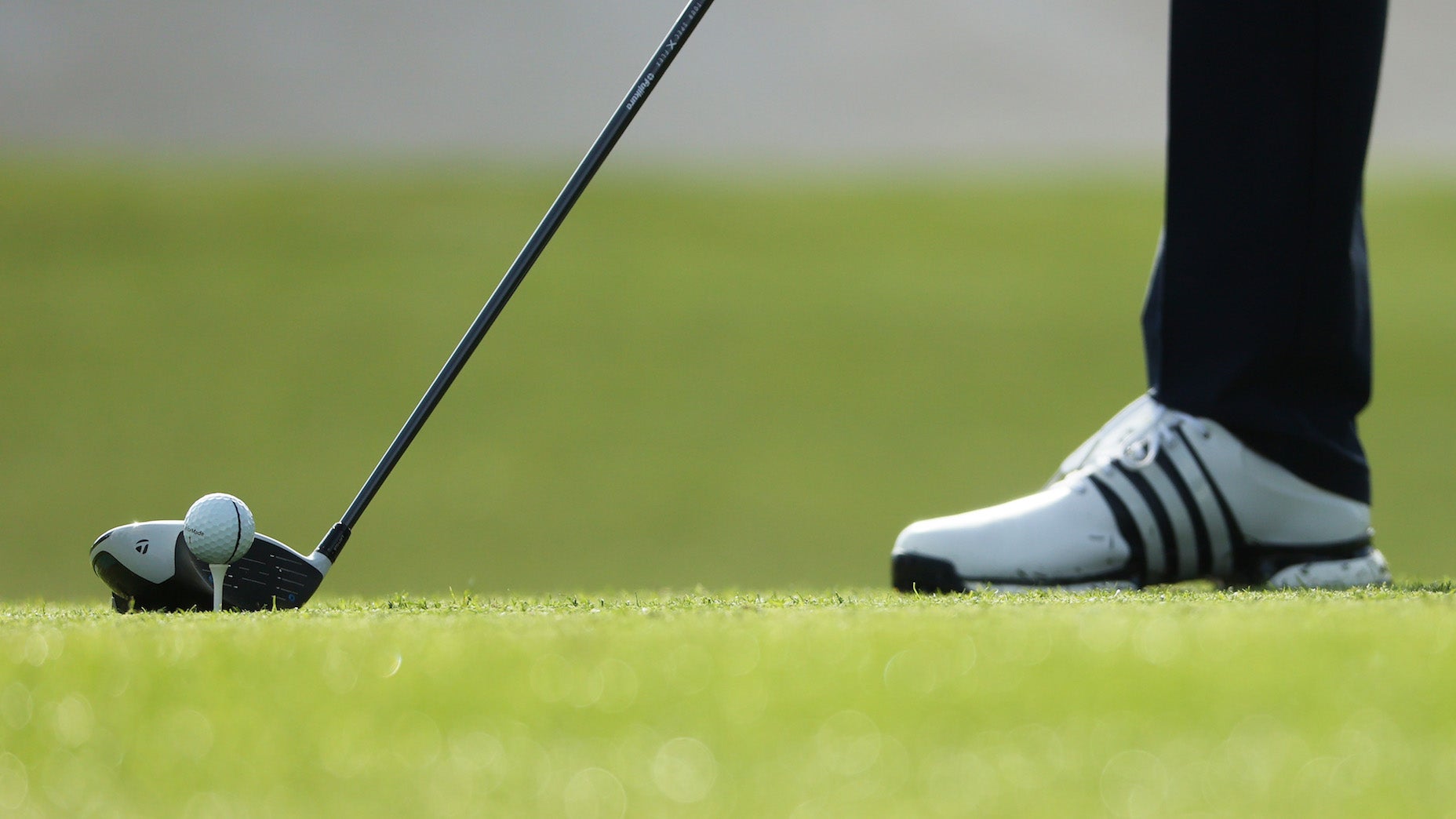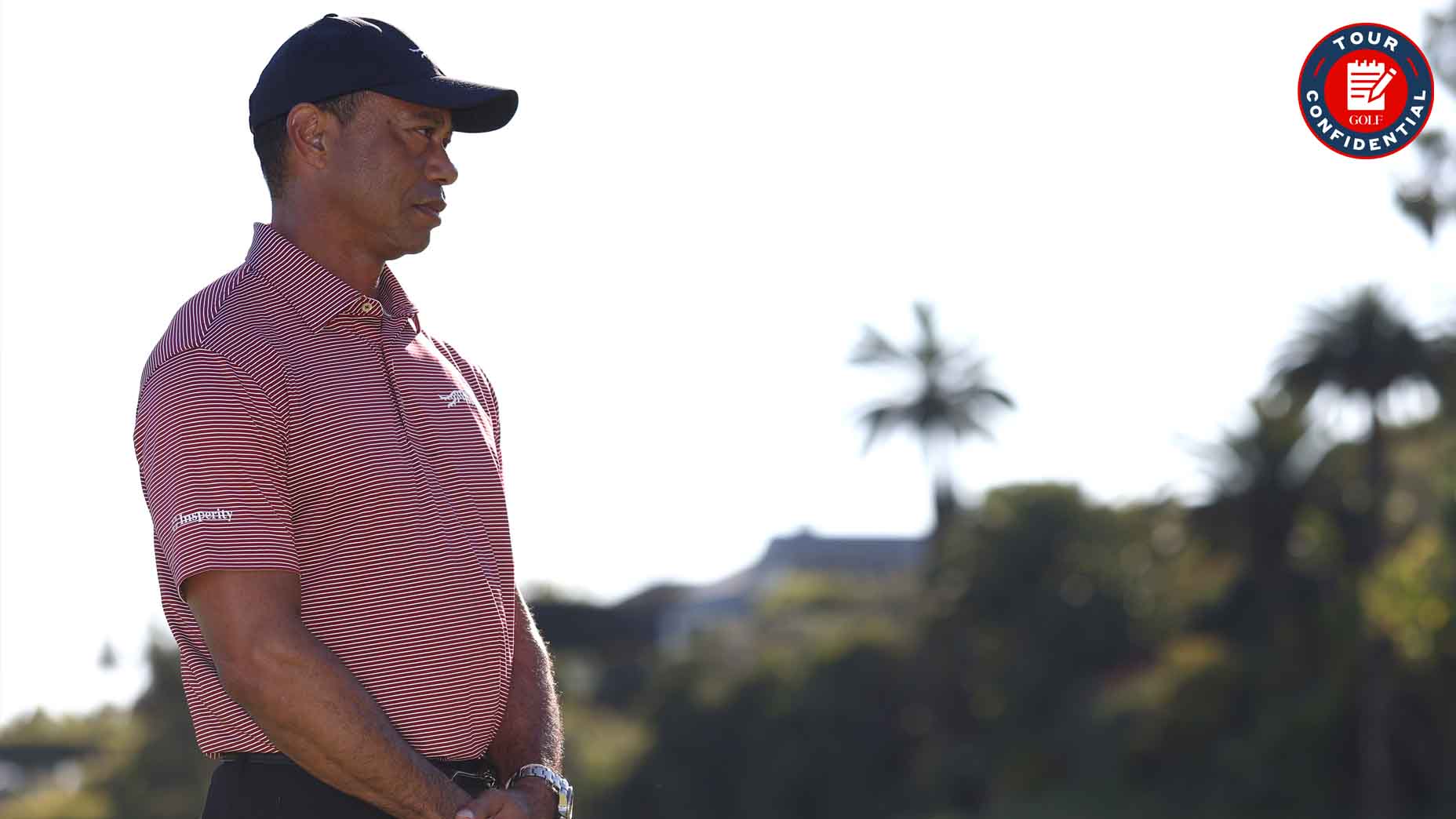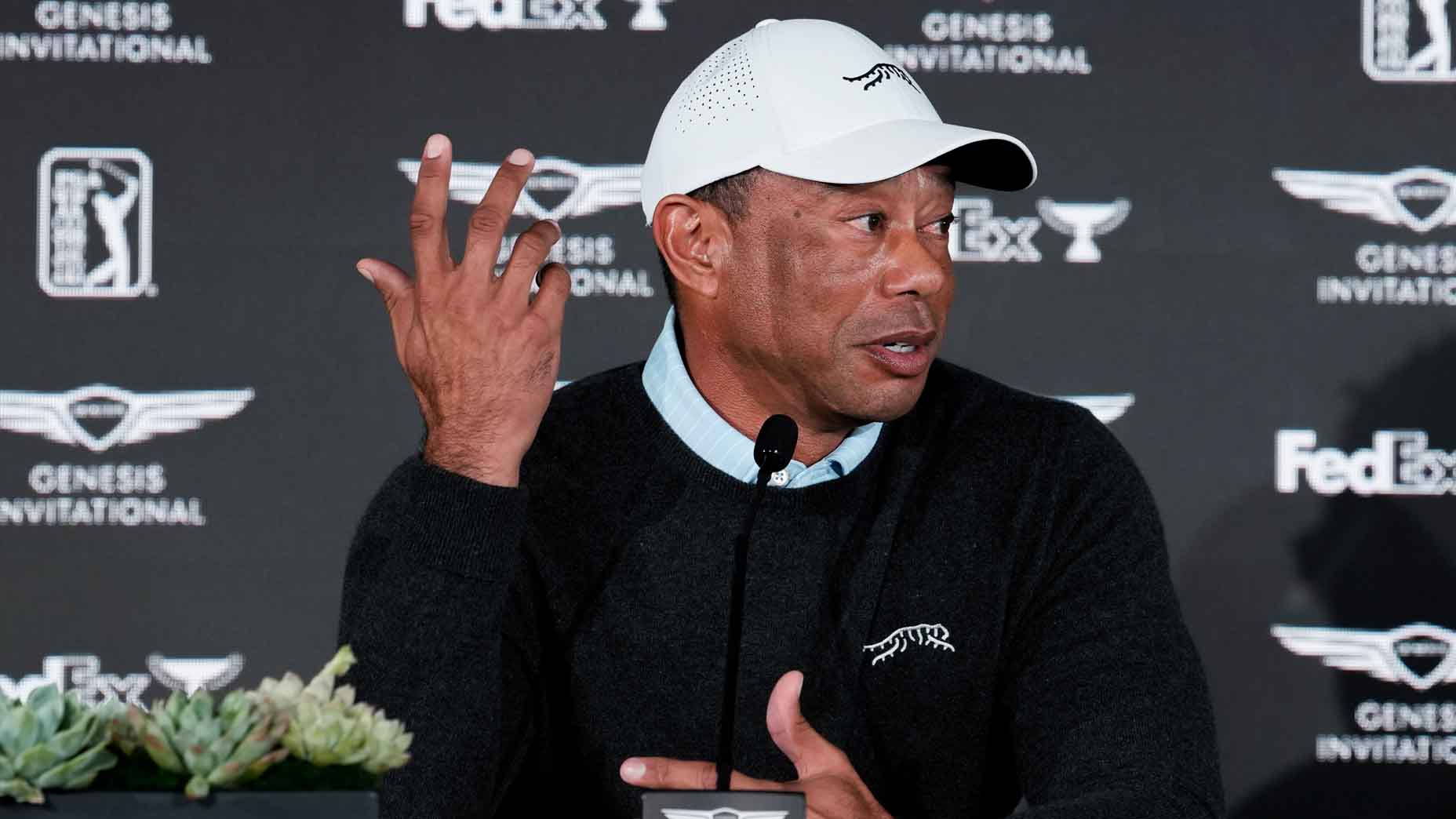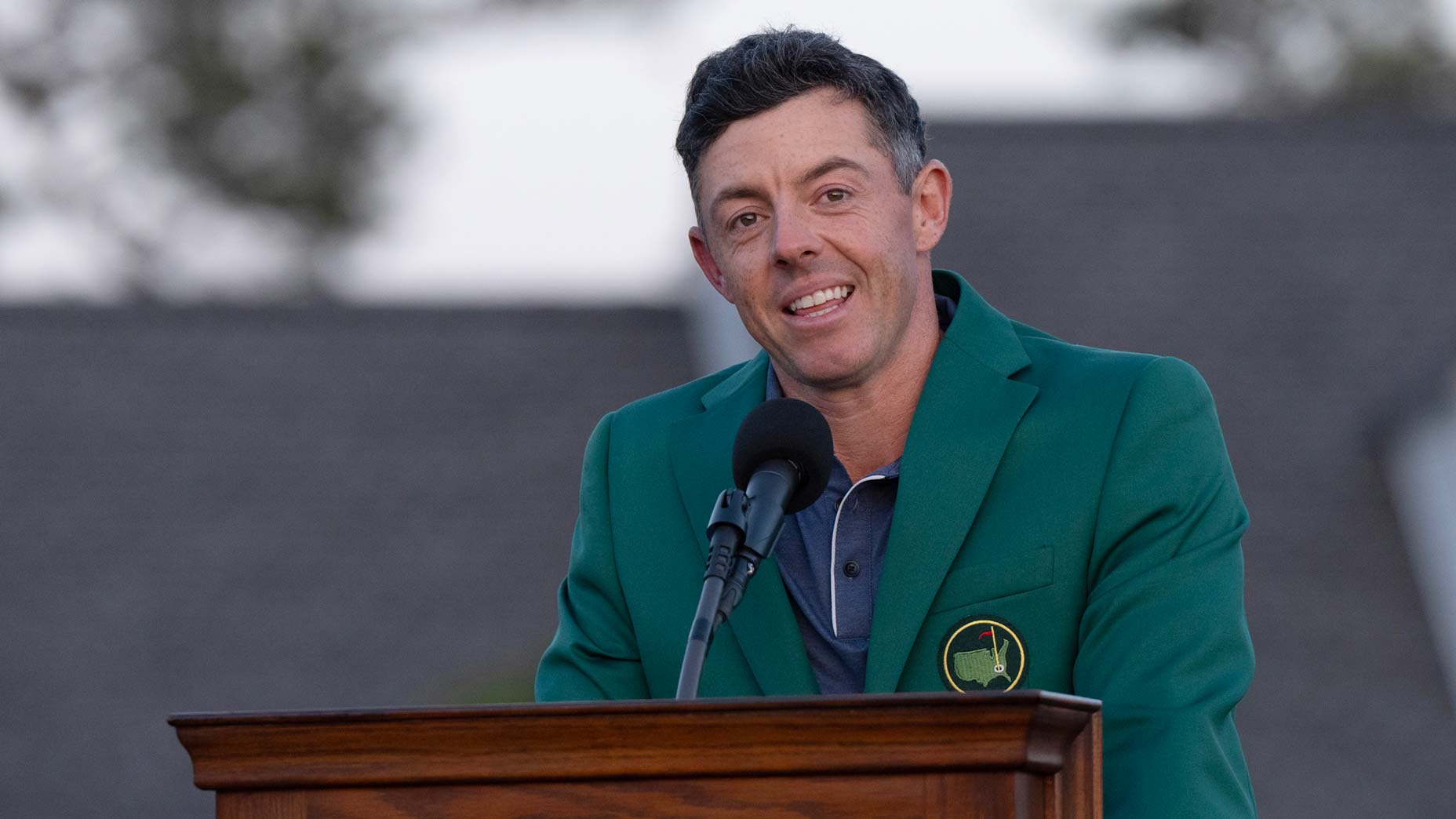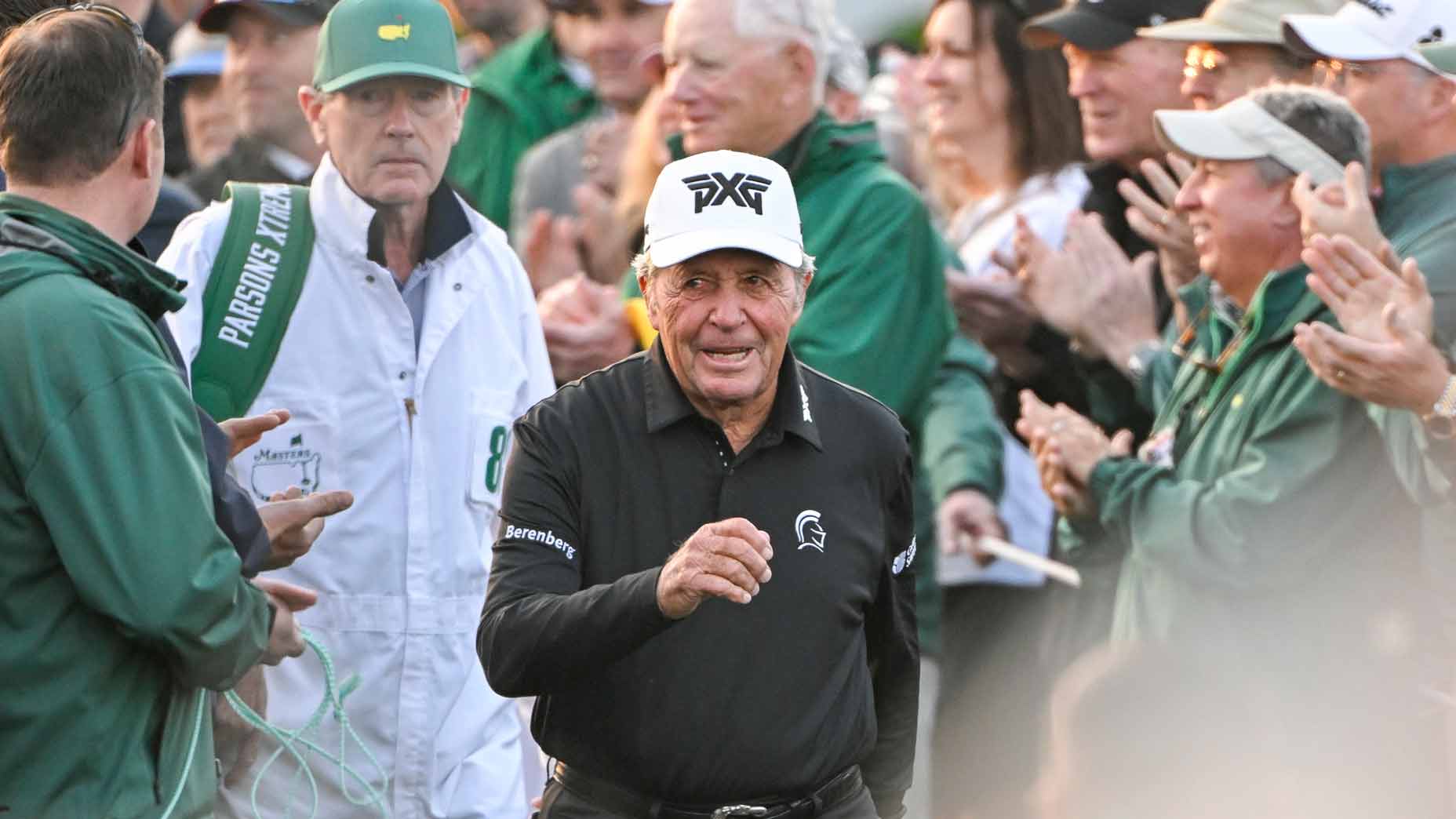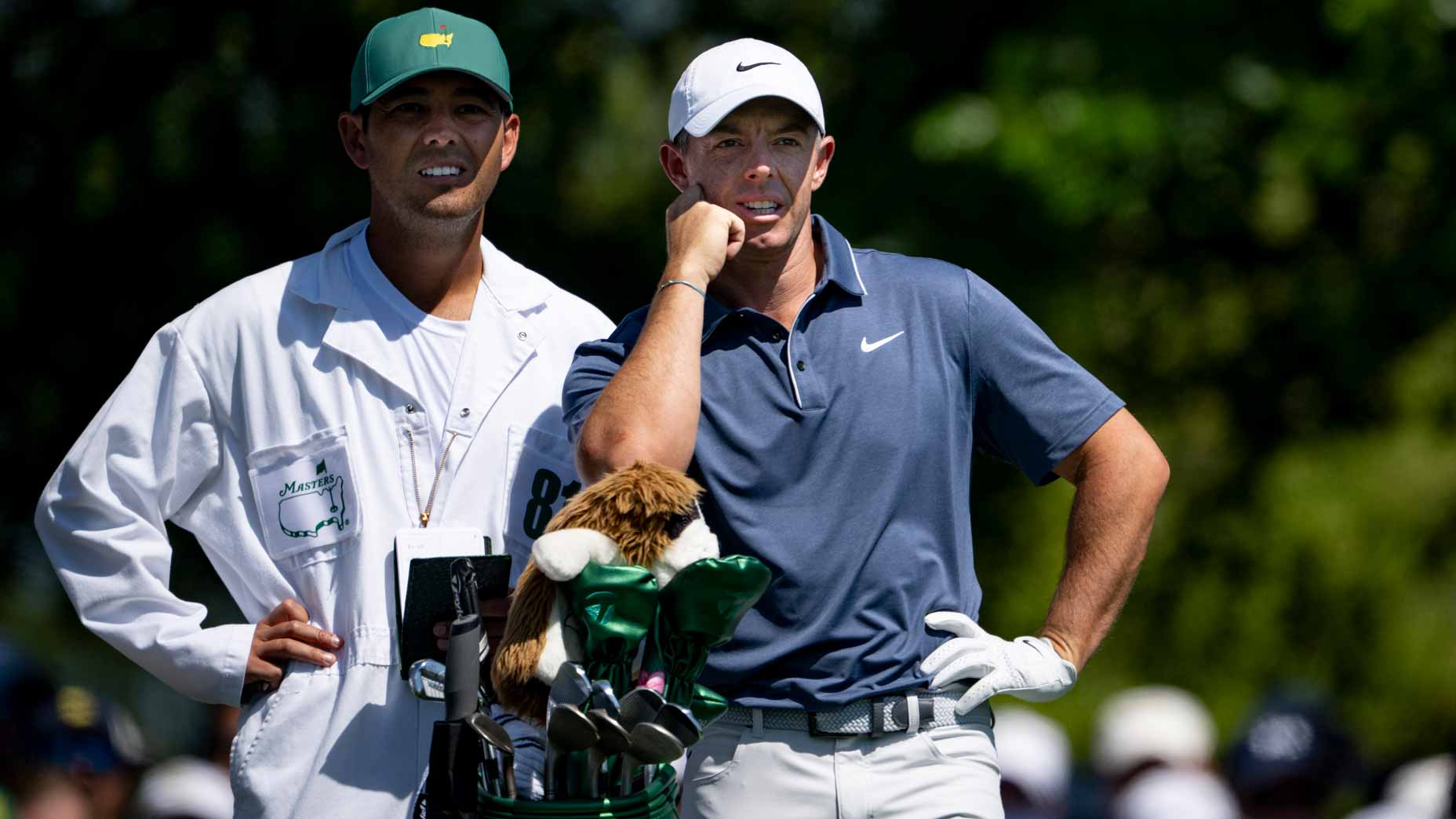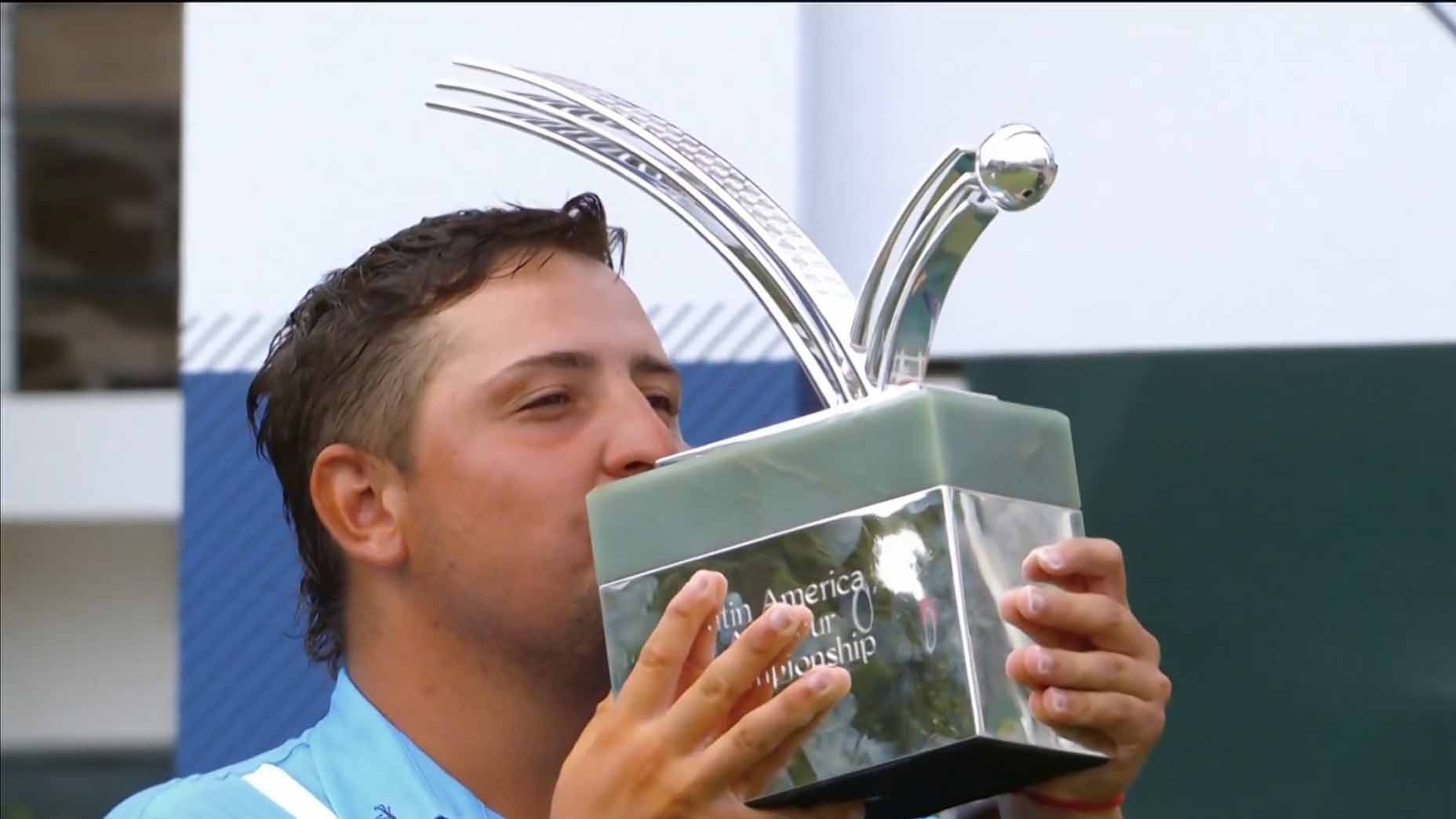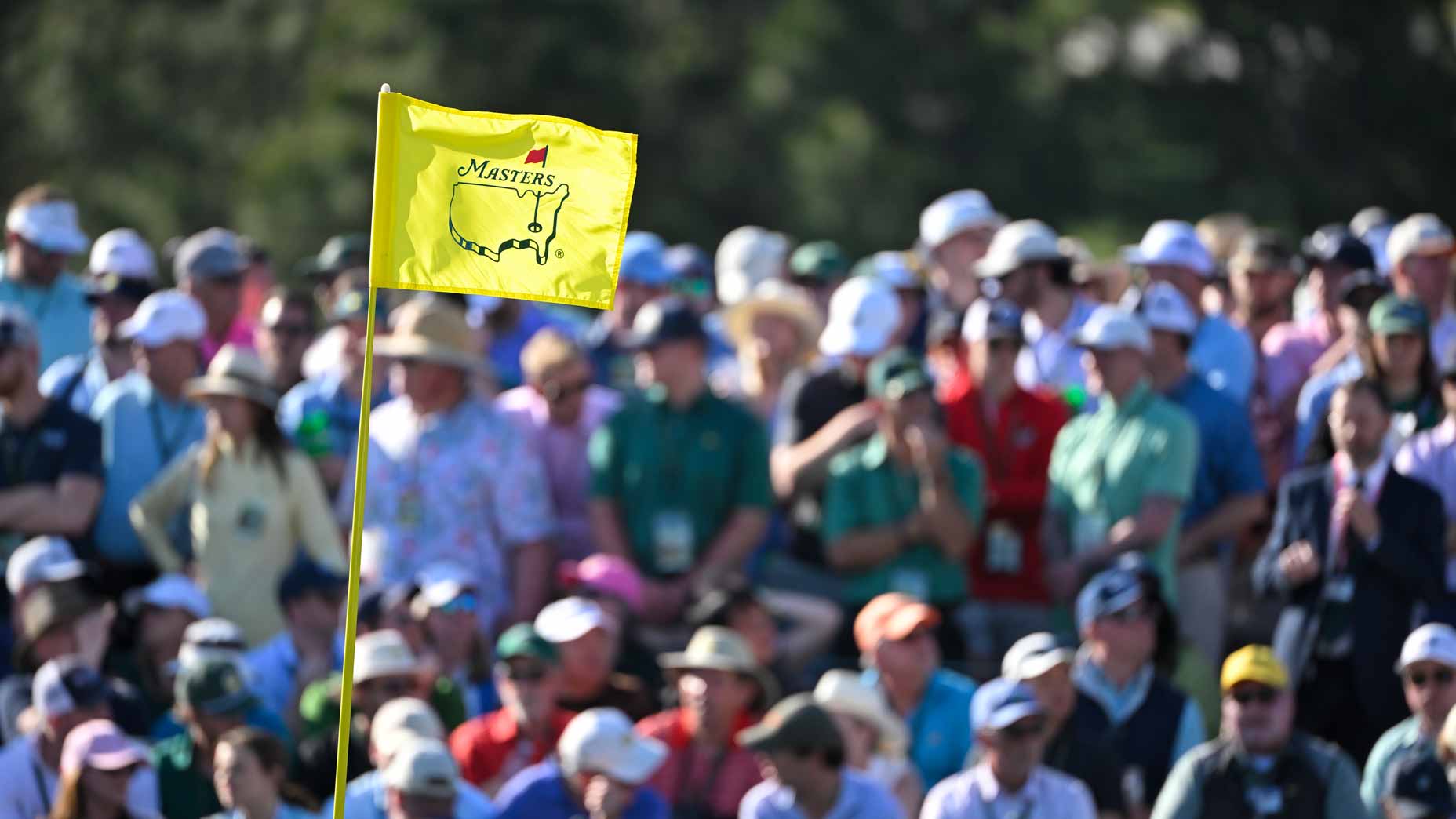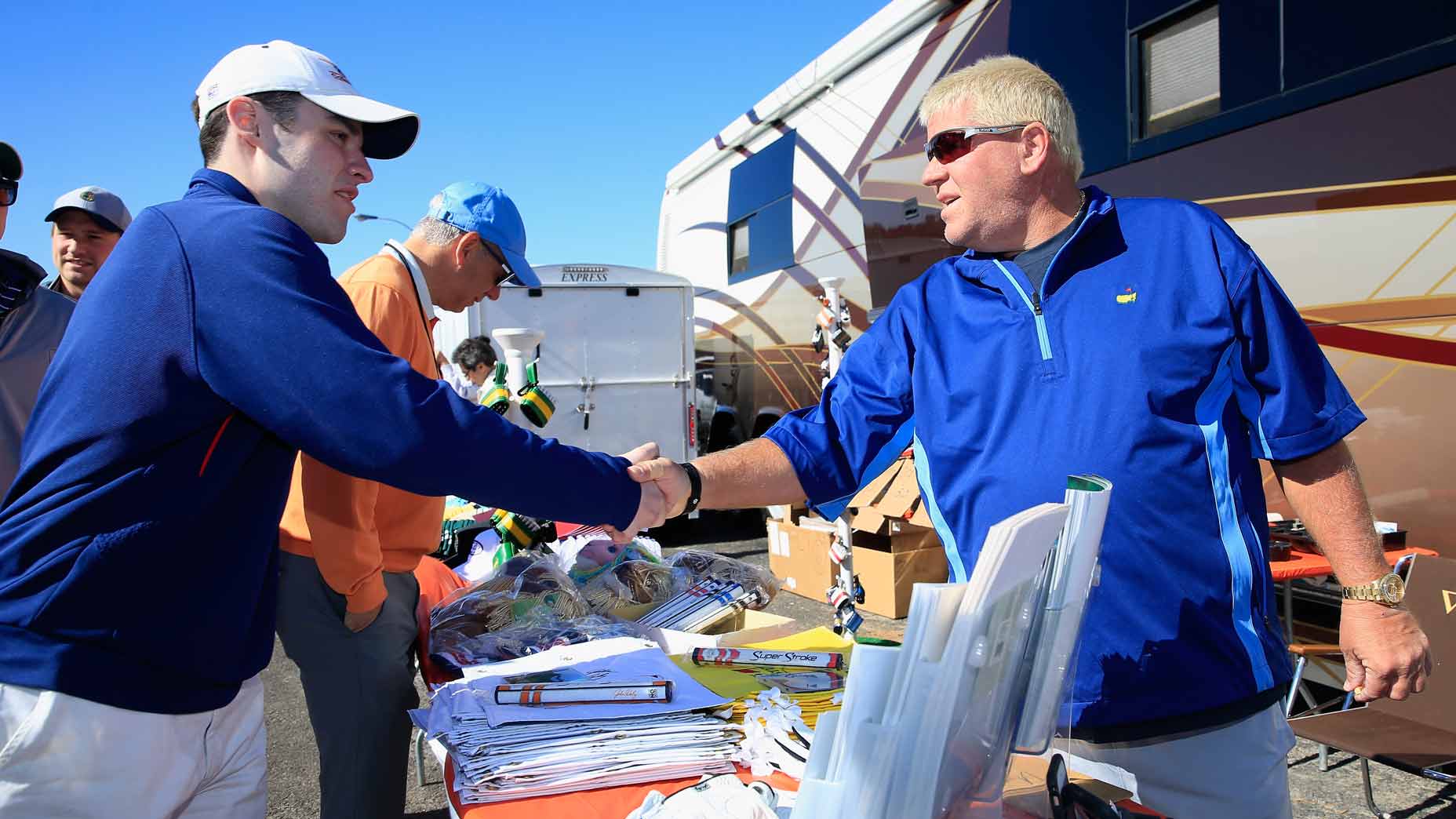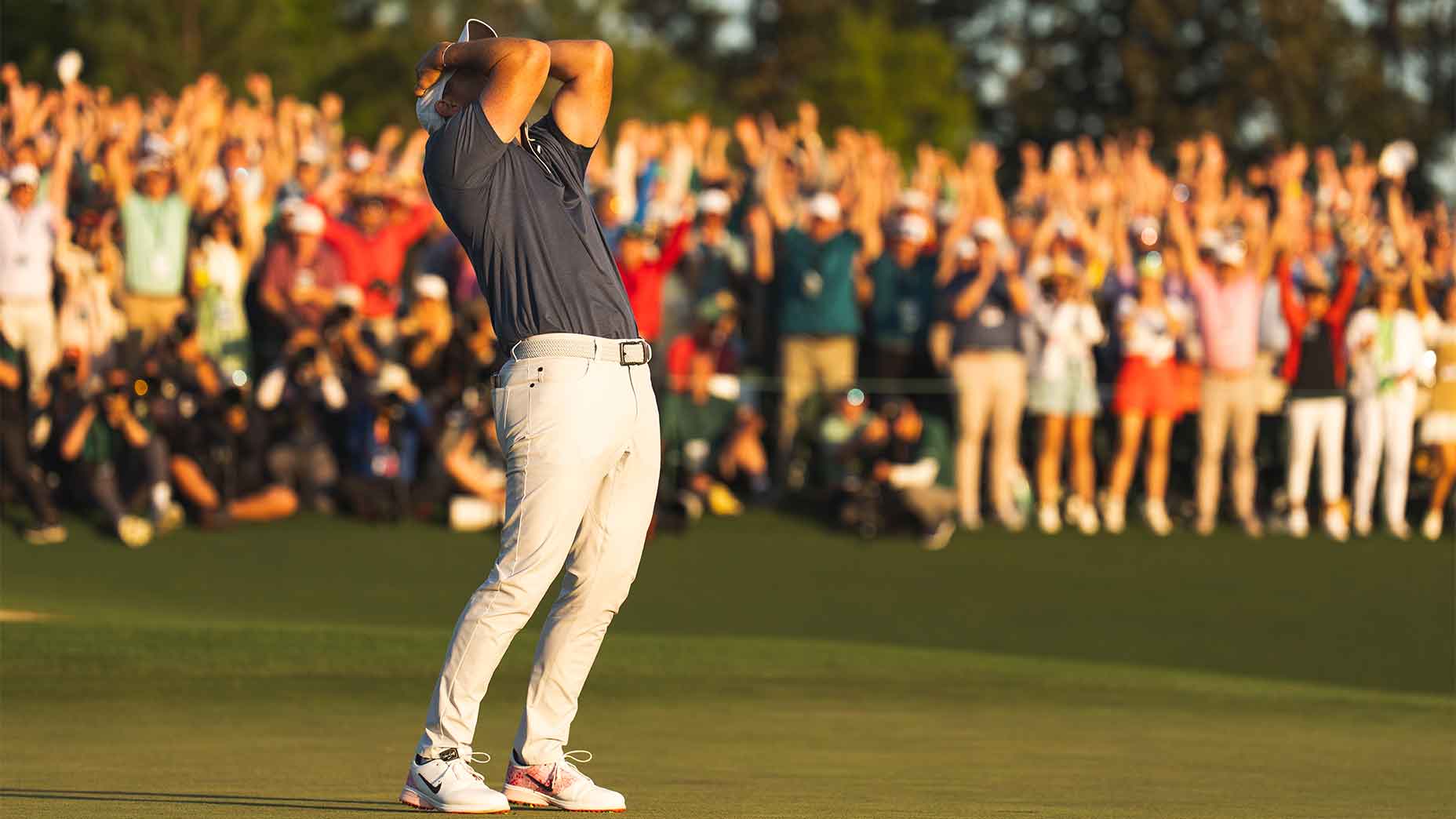AUGUSTA, Ga. — It’s not entirely fair, but what happens on Sunday at the 2020 Masters will in large part define Dustin Johnson’s career.
A win would mean two majors in his trophy case — and counting. If he slips on a green jacket, it will mean that he slept on a lead at the Masters and converted, coldly and clinically. A loss? Well, let’s not go there. This is DJ’s tournament to win. He’s spent more weeks as World No. 1 than any of his peers; this is one he deserves.
With a legacy hanging in the balance, by a thread so unreasonably thin, how do you spend your final minutes? In what manner do you board a train when you’re so invested in the final destination?
For Johnson, it started on the putting green at Augusta National, less than an hour before his adjusted 9:39 a.m. tee time.
He dropped a handful of balls, lined up a downhill slider and set them in motion.
When Johnson is feeling it, as he was during his seven-under round of 65 on Saturday, he’s not spending much time thinking. At times, it doesn’t look like he’s even doing, either. He’s like a captain who has set the plane onto auto-pilot: The machine mostly guides itself, with the help of only the gentlest of touches.
“I just try to hit it down the line,” Johnson said after his third round. That’s his putting system.
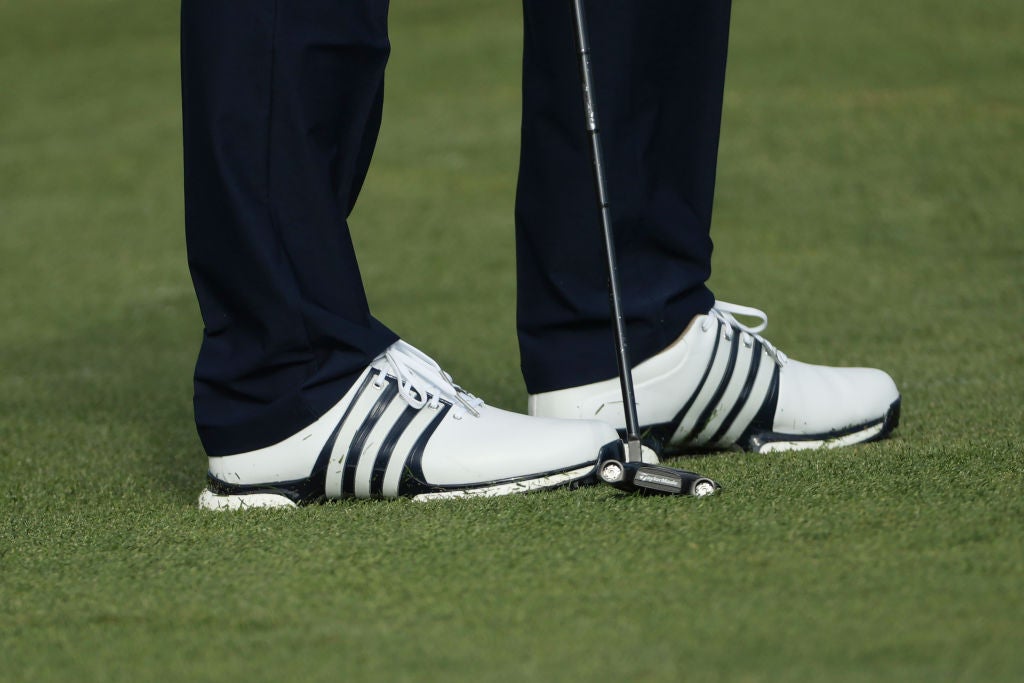
On the course, DJ uses the line on his ball when he lines up those putts. He wasn’t for these. He was buzzing through them too quickly for that.
He missed about as many of these putts as he made. Given the PGA Tour percentage for putts from that range hovers in excess of 90 percent, this would ordinarily be cause for alarm. It’s certainly more interesting to wonder if there were sirens ringing in DJ’s head after seeing those putts slide by the hole — but it’s always hard to tell how much professional golfers actually care about these things. Truthfully, whether his ball ended in the hole seemed irrelevant to whatever motions DJ was going through. About 10 minutes later, he was off the green, hitting chips.
Forty-five minutes or so before his tee time, Johnson moved to the range. The slight location change was less notable than the fact he was still holding his wedge, which hand’t left his hand since his stint on the putting green.
The wedge is important. Johnson’s talent has always been unquestioned, but in 2016 he did the hard work to refine it. Those were holding him back, so he employed a very DJ solution to that problem: He hit lots of wedges.
It worked. From 2016 and ’18, he improved from 160th in SG: Around the Green to 33rd, ascended to World No. 1 and won 10 times on the PGA Tour, including his U.S. Open win.
Johnson’s coach, Claude Harmon III, dumped out some balls and the wedge session began.
Forty minutes until his tee time.
Wedges.
Thirty-five minutes before his tee time.
Wedges.
Twenty-five minutes before his tee time.
Wedges.
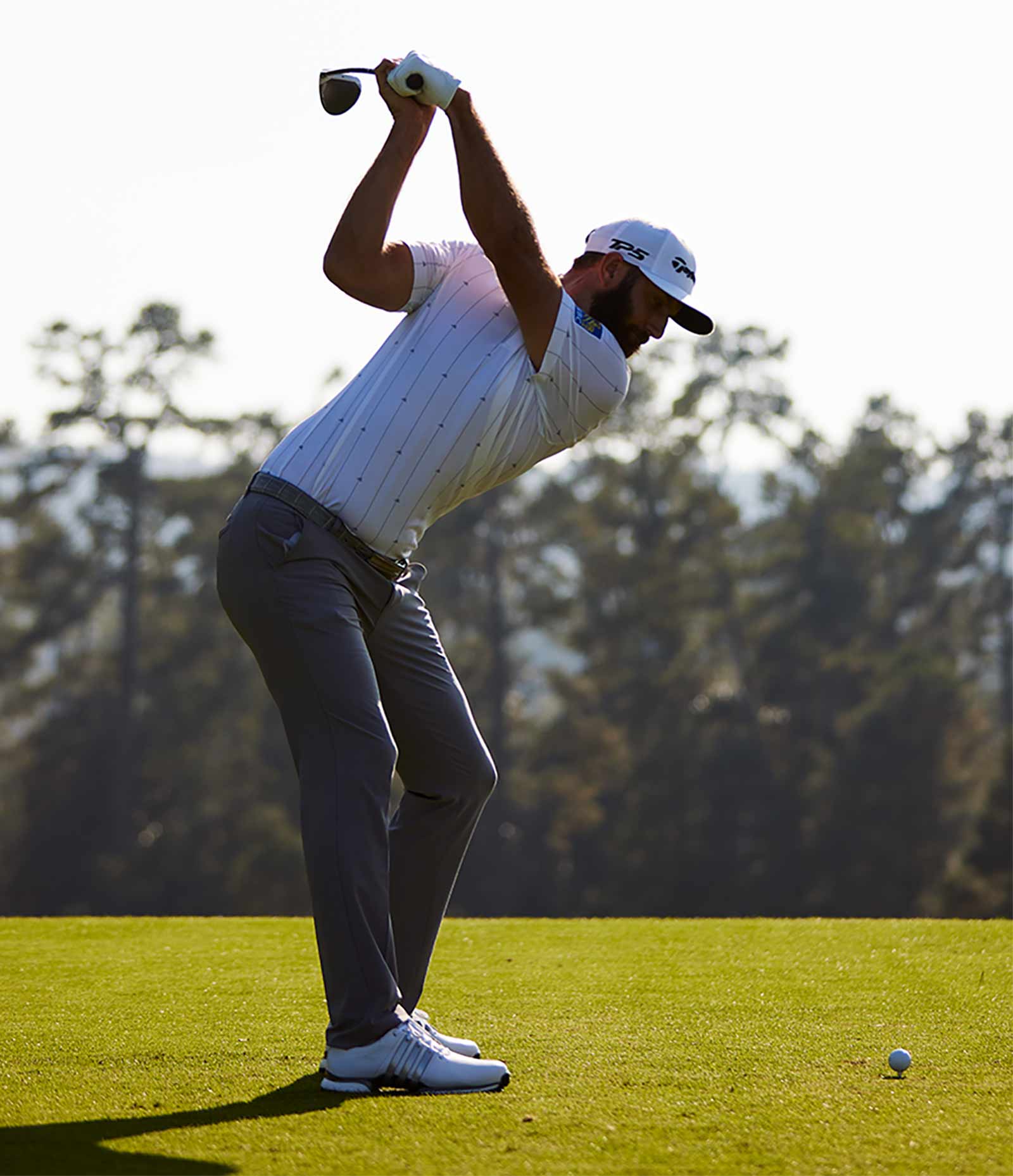
The shots themselves all looked the same. They grew gradually in distance, but there was no Bryson-style number checking. No discussion of the spin rate. No goal, as best as I could see it. You or I would’ve been pummeling mid-irons by now, but DJ was just working his way into a groove, with an almost meditative quality.
The wedge went into the bag about 20 minutes before his tee time, when he began pulling clubs for specific shots he knew he’d be hitting later today. The stock long-iron he’d hit into the 4th hole. The mid-iron he’d hit into 6th. The draw 3-wood he hit off the 13th hole yesterday.
He drank some water and out came the driver. He hit a perfect drive or two when Justin Thomas glanced over as he walked past, but didn’t say a word. About halfway through the session, Johnson hit his worst shot of the day. A heeled slice. He stepped back, reset and hit another drive. Better contact, but the same slice-y shape.
“Just didn’t release,” Harmon said.
Johnson stepped away again, took another swig of water and swung hard. The five-yard fade returned, and two more insurance drives later, the driver was back in the bag. He hit eight of them, in total.
His final two shots before his round, perhaps fittingly, were once again wedges. Two smooth ones, and then off to the 1st tee to play the most consequential round of his life. The destination was still unclear, but it was time to move. The train was leaving.
